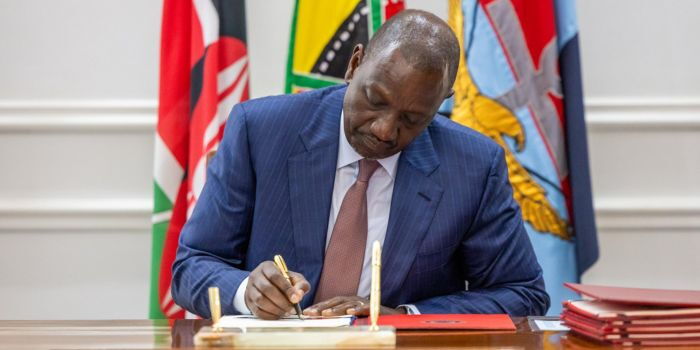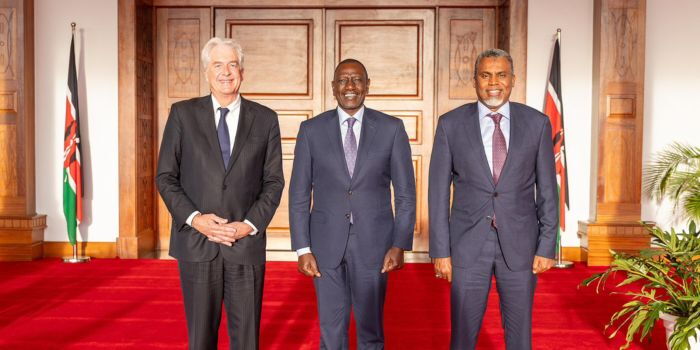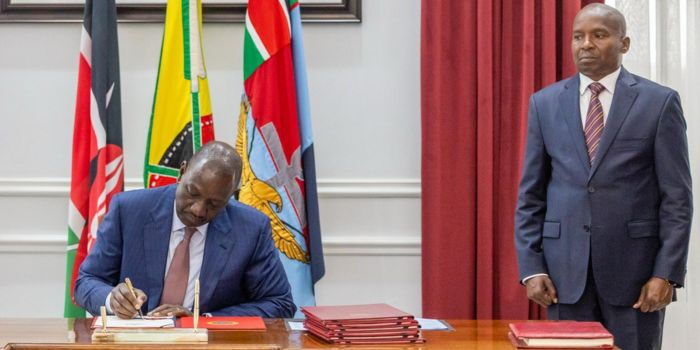President William Ruto has unveiled a powerful new plan to fight corruption in Kenya. He announced the creation of a special multi-agency team that will bring together the country’s strongest institutions. The move has raised both excitement and fear, especially after Ruto openly accused Members of Parliament of taking millions in bribes.
The new body will be called the Multi-Agency Team on War Against Corruption (MAT). According to Ruto, this team is meant to bring unity, speed, and strength to a fight that many Kenyans feel has been too weak for too long.
The Executive Office of the President will chair the team, while the Office of the Attorney General will lead the Secretariat. Ruto explained that this arrangement is designed to avoid competition between institutions and instead encourage teamwork.
Some of the most powerful arms of the state will be part of MAT. These include the National Intelligence Service (NIS), Ethics and Anti-Corruption Commission (EACC), Directorate of Criminal Investigations (DCI), Office of the Director of Public Prosecutions (ODPP), Kenya Revenue Authority (KRA), Central Bank of Kenya (CBK), Asset Recovery Agency (ARA), Public Procurement Regulatory Authority (PPRA), and the Financial Reporting Centre (FRC).
This combination of intelligence, law enforcement, finance, and regulatory bodies shows that Ruto wants to fight corruption at every level, from hidden bank accounts to shady procurement deals.
Ruto said the team will not be limited to the listed members. If needed, MAT can invite other agencies to join and help strengthen its operations. This flexibility, he believes, will make it harder for corruption networks to escape.
In his statement, Ruto said: “The MAT shall, to the greatest extent possible, foster cooperation, coordination, and collaboration to enhance the effectiveness of the fight against corruption. For this purpose, the team shall be funded from the budgetary allocations of its member entities and other sources.”
The team has many tasks. First, it will improve cooperation among anti-graft institutions, making sure they share intelligence and avoid working in isolation. Second, it will engage other government organs and the private sector so that the fight against graft is not left to government alone.
MAT will also study what each institution needs, whether more staff, better technology, or stronger legal tools, and help secure those resources.
Another big role of the team will be communication. According to the President, the public has lost confidence because past efforts looked weak. By sharing updates, progress, and success stories, MAT will try to rebuild trust.
The team will also work with partners outside Kenya. International collaboration, Ruto said, is necessary because stolen money often ends up in foreign banks or investments abroad.
The plan, however, has already attracted controversy. A day before creating MAT, Ruto had warned lawmakers directly about bribery. He accused them of receiving millions to influence votes and block reforms.
This was not a soft warning. It was a clear threat that the government could start targeting MPs with investigations. Some MPs have already expressed fear that this new war on corruption might be used as a political tool.
Opposition voices argue that Kenya has seen many anti-graft campaigns, but few have delivered real results. They warn that without strong political will and independence, MAT could just become another name on paper.
Supporters, on the other hand, say this is the boldest step yet. They believe combining intelligence, law enforcement, and financial agencies could finally break corruption cartels that have survived for decades.
Civil society groups have welcomed the move but insist that transparency will be key. They have asked the President to allow regular public reports so that citizens can track progress.
Ordinary Kenyans remain cautiously hopeful. Many are tired of seeing scandals exposed without justice. The creation of MAT gives a new sense of possibility, but also fresh doubt: will this be another false dawn, or the beginning of real change?
Ruto himself is under pressure. By placing MPs in the spotlight, he has created enemies within Parliament. Whether MAT will have the courage to go after powerful lawmakers remains to be seen.
As one analyst put it, “This is the President’s gamble. If MAT succeeds, Ruto will go down as the leader who finally broke the corruption curse. If it fails, it will become another symbol of broken promises.”
For now, Kenya waits. The institutions have been named. The powers have been given. The war has been declared. The question remains: Will the hunters really hunt, or will the system protect its own?






